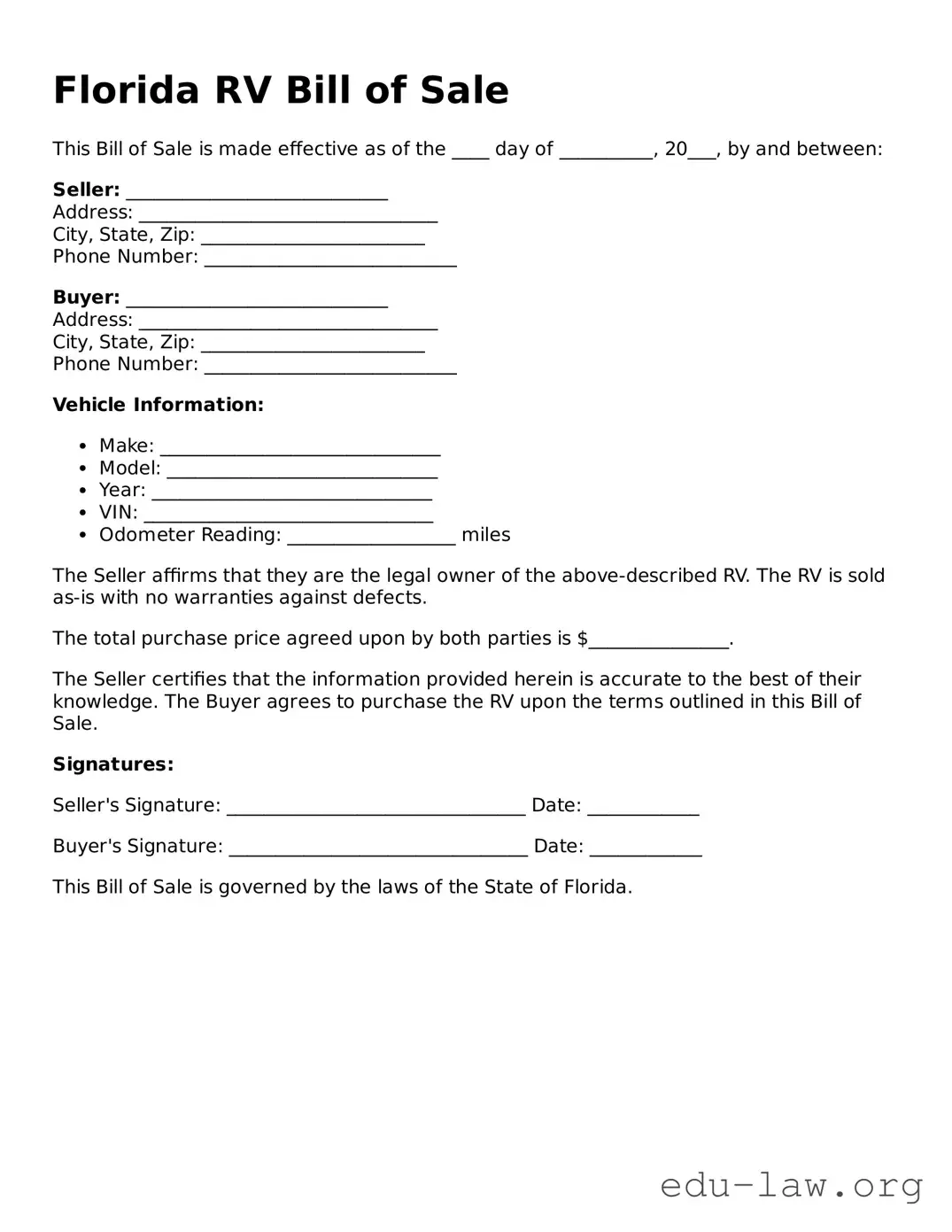What is a Florida RV Bill of Sale form?
A Florida RV Bill of Sale form is a document that serves as a legal record of the sale of a recreational vehicle (RV) in the state of Florida. This form captures essential details about the transaction, including the identities of the buyer and seller, vehicle information, purchase price, and any additional terms agreed upon. It acts as a safeguard for both parties, ensuring that the sale is documented properly and protecting their rights in case of disputes.
Is a Bill of Sale required for an RV sale in Florida?
While a Bill of Sale is not legally required for RV sales in Florida, it is highly recommended. This document provides proof of ownership transfer and can be crucial for registration and titling purposes. Without it, buyers may encounter difficulties when attempting to register the RV in their name or if disputes arise regarding the sale.
What information should be included in a Florida RV Bill of Sale?
When drafting a Florida RV Bill of Sale, several key pieces of information should be included. These typically encompass the names and addresses of both the buyer and seller, a detailed description of the RV (make, model, year, VIN), the sale price, and the date of the transaction. It is also advisable to include any warranties or conditions of the sale, signatures of both parties, and the date signed.
Can I create my own RV Bill of Sale, or are there specific forms I must use?
You can create your own RV Bill of Sale in Florida as long as it contains all necessary information. There are also templates available online that comply with state requirements. However, check local regulations and consider using a standard form to ensure that all legal bases are covered. Using a well-accepted bill of sale form can help streamline the process and avoid potential issues later.
How does the Bill of Sale affect the registration of the RV?
The Bill of Sale is a crucial document when registering your RV in Florida. Upon purchase, buyers must present the Bill of Sale along with the original title at their local Department of Motor Vehicles (DMV) office. This documentation proves that the buyer has acquired ownership and is necessary for completing the registration process and obtaining a new title in the buyer's name.
Where can I obtain a Florida RV Bill of Sale form?
A Florida RV Bill of Sale form can be obtained from various sources. Many online legal document services offer templates that are compliant with Florida state law. Additionally, local DMV offices may provide copies or guidelines on how to properly format the document. It is essential to ensure that the chosen form is up-to-date and meets any specific requirements of the state.
